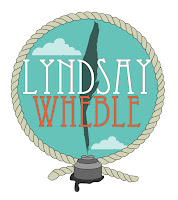Y'all know I love me some Mitford, after all, and I feel that this might be the perfect witty, sparkling antidote to all that Christmas sentimentality that can start to cloy as the big day approaches: the dry, sharp champagne to wash down all the overly-sweet office party nibbles, if you will.
The plot revolves, as all the Mitford novels I've read do, around a group of highly-monied and highly-cutting party animals who gad about town glossing over heartbreak and ruin, pouring themselves more drinks and being wildly funny as they go. The central plot of sorts centres on Paul Fotheringay, a poor but charming young writer who is most depressed that his début novel, a work of great, sweeping tragedy, has been deemed the funniest book if the year and categorised by most as a farce. Put out by this as he is, he decides that his next work with be a biography, a genre he sees as the height of sober respectability, and settles quite randomly on writing the life of Lady Maria Bobbin, a 19th-century poet, whose descendants still live at Compton Bobbin, a grand Tudor pile in the Gloucestershire countryside.
Paul's request to see Lady Maria's diaries and personal correspondence subsequently refused, he and the lovely Amabelle, a doyenne of the circle with a risqué past, concoct a plan to get him hired at Compton Bobbin as a tutor, whereupon he falls in love with the daughter of the house, the beautiful if bashful Philadelphia Bobbin. With another suitor on the scene and a biography to write in secret, plus all the aforementioned gadding about town, things get rather complicated over their Christmas in the countryside.
The joy of this book is the humour, which is on top Mitford form despite this only being her second novel, published a year after Highland Fling, in 1932. It's so funny - I read this soon after a P. G. Wodehouse and barely noticed the change in terrain:
The two children of Captain and Lady Brenda Chadlington took a tremendous fancy to Paul, and he, although in the first place he had been completely put off by the fact that their names were Christopher Robin and Wendy, decided after a day or two that he would overlook this piece of affectation, which was, after all, not their own fault. He addressed them as George and Mabel (his lips refusing to utter their real names) and became very much attached to them.The foreword also references the Wodehouse aspects, saying that 'it does seem rather as if he [Wodehouse] and that other great contemporary master Evelyn Waugh had been passed through a not-at-all raucous and really very caring blender...', but that the additions of 'individual pitch, heightened éclat and a very witty woman's perspective' produce a 'slaveringly appetising result.' The feminine edges of her writing are not to be underestimated: I find her much more arch and ferocious than the other two, with an instinctive knowledge of the underpinnings of her characters that means that, with a sentence, she can cut them all down to size; very much in the manner of a woman with a cocktail at a party, rather than the man in tweed at his desk. She's that girl - glamorous, witty, mean to a virtue - that you always wish was your friend (or I do, at least.)
Keen Mitford fans will also find in this book interesting hints of the Nancy's trademarks-to-come: two characters are found 'having been sitting out for more than two hours in the linen cupboard' and there is a make-believe language used throughout, which seems to involve placing a 'ge' after each syllable you utter; I couldn't fathom it though - I'm far too non-U.
My only criticism of this delightful novel is that it seems reasonable to assume that Nancy got better at plotting her books as time went on, as this one meanders a little and takes a rather long course to the end. It's a little Groundhog Day-esque, although the lives of these characters seems rather that way also, there being so much fun to be had and so little time in which to have it. Maybe if Paul Fotheringay was a little stronger as a protagonist he could have pulled the story after him; in any case, it's a relaxing read for that reason, it never demanding too much of you in a sitting or putting your life-shredded nerves on edge.
I'd recommend this as a lovely Christmas present for anyone who you think might fancy a sparkling, witty novel with which to wile away some time, punctuated only by mulled wine, a real-life Christmas Pudding and a boatload of raucous giggles.
Title: Christmas Pudding
Author: Nancy Mitford, with a foreword by Joseph Connolly
Date: Originally 1932, this edition 2012
Publisher: Capuchin Classics
Format: Hardback, 207 pages, and I was sent it by Capuchin Classics.

